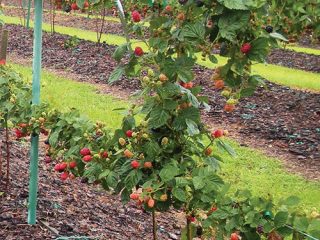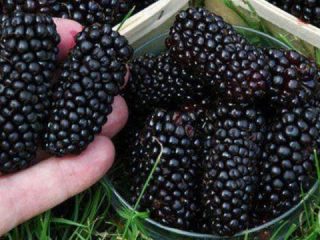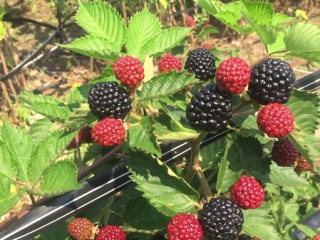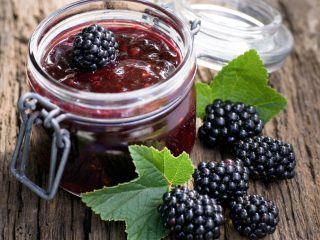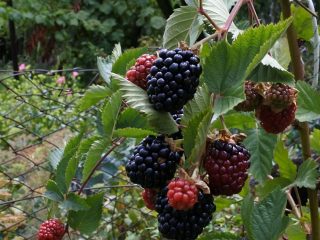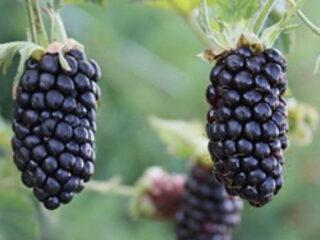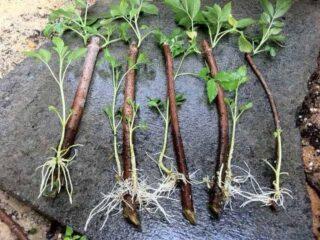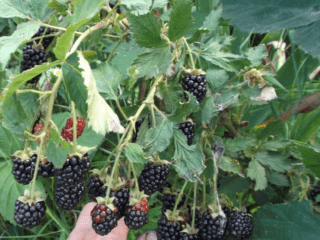Content
Blackberries do not ripen in regions under different conditions. In search of a solution to the problem, plant owners are trying to correct the situation in all possible ways. To achieve success, you need to identify the causes and take action.
When do blackberries ripen?
Depending on the variety and variety, you can start enjoying ripe berries in mid-summer. Garden blackberries ripen faster in the garden: in July. The wild variety does not produce its harvest as quickly: at the end of August or beginning of September.
Important! An average growing season of 1.5-2 months is found in new hybrid varieties; they can produce several harvests during the summer. The fruits of late-ripening representatives of the crop do not ripen quickly either, so you need to carefully study the characteristics of the seedling.
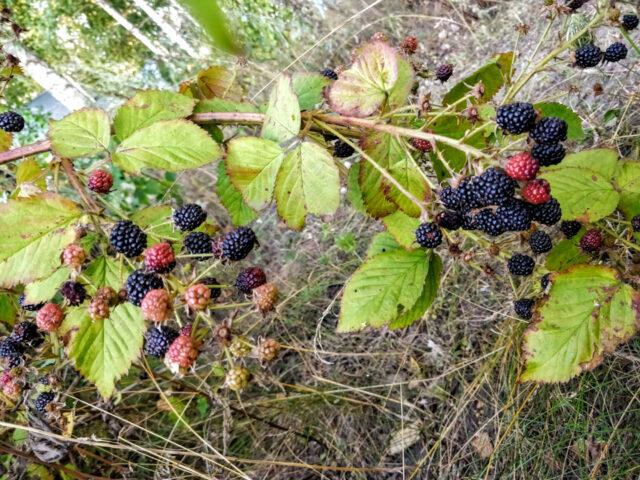
Timely picking of berries is a guarantee of an excellent product: overripe specimens quickly fall off and lose their taste
Signs of maturity:
- The color of the fruit is black with a bluish coating;
- the pulp is soft to the touch;
- the hole in the center of the drupe is completely filled;
- The blackberry is easily separated from the stalk.
Why do blackberries not ripen within a season?
It should be taken into account that the fruits of the bush ripen gradually, several berries per cluster.First they turn pink and then turn black. But gardeners begin to sound the alarm when the blackberries do not ripen: the fruits on the cluster remain light in color. To identify the cause, you need to examine the bush and study the principles of agricultural technology.
Lack of nutrition, iron
There is a high probability that blackberries will not ripen during the season for gardeners who neglect care. Incorrect and untimely feeding, lack of loosening, weeding - all this leads to the fact that the capricious plant refuses to fully bear fruit.
A lack of nitrogen manifests itself as follows: the leaves become smaller in size, light yellow in color with brown edges. If there is an excess of the substance, the shoots grow slowly and do not ripen in a timely manner. Please note that they are easily damaged at low temperatures.
A lack of phosphorus is manifested by the fact that the crop does not ripen, the shoots of the hybrid become thinner, change color to purple, and dry out quickly.
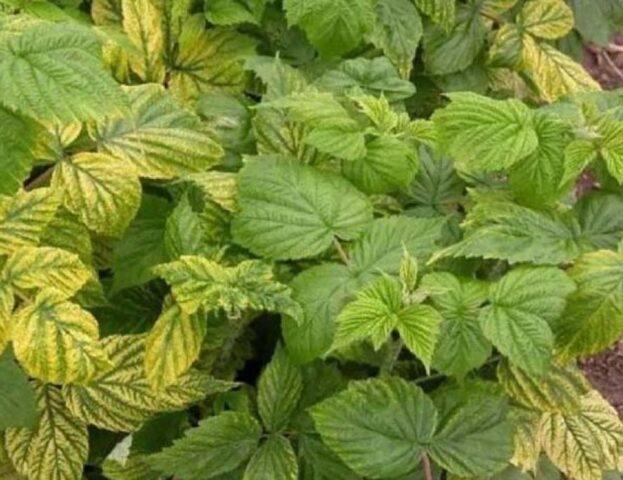
Iron deficiency is determined by the yellow tips of leaves and shoots, while the veins remain green on the plates
Lack of light
Another reason why blackberries don't ripen is due to lighting. The shrub does not like hot midday sun, but also does not tolerate shade. Due to lack of light, the flowers of the shrub dry up and the shoots stretch out. The berries not only do not ripen, but also become smaller and lose their taste. The hybrid itself does not gain green mass well and is not resistant to pests and diseases. Without a transplant he will die.
Violation of watering rules
Blackberries do not ripen in gardens where the owner is unfamiliar with the basics of agricultural technology. A shrub, like any plant, needs water, and a lack of moisture negatively affects its development and fruiting.
The opposite of drought is excessive soil moisture.The harvest deteriorates if unripe berries are constantly exposed to moisture. Shoots lying on wet ground quickly become moldy. If the fungus spreads, the hybrid will have to be destroyed.
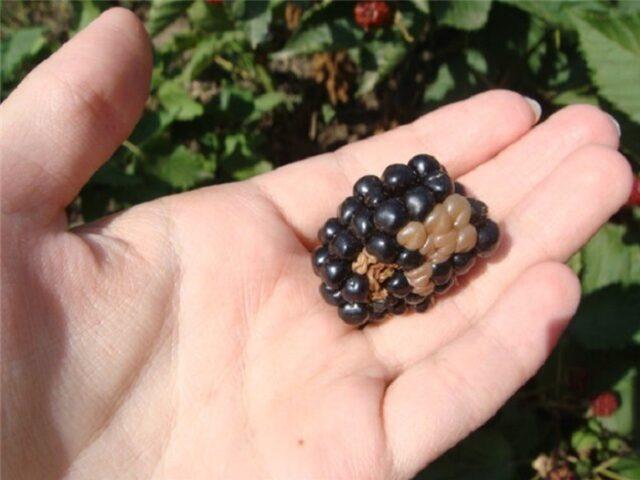
Harmful bacteria destroy not only shoots and roots, but also the berries themselves, and can affect nearby plants
Unsuitable climate
Often gardeners are faced with the problem that the thornless blackberries on the plot are not ripe. This is due to the fact that this variety is more capricious than wild berries.
Most varieties have a negative attitude towards windy weather. In an unprotected bush, the berries do not ripen and quickly fall off, and the shoots break.
Complaints that blackberries have not ripened are often heard from gardeners living in regions with climate swings. The shrub reacts negatively to sudden decreases and increases in temperature by more than 10 °C.
What to do if garden blackberries do not ripen
The first thing the owner of a shrub must do is determine its place of “residence.” The plant needs to be given a sunny area well protected from the wind. In partial shade, the shoots take root but grow poorly, and the blackberries turn red but do not ripen.
And although blackberries are undemanding to the soil, they do not ripen on depleted soils. The shrub feels comfortable on sandy loam and black soil.
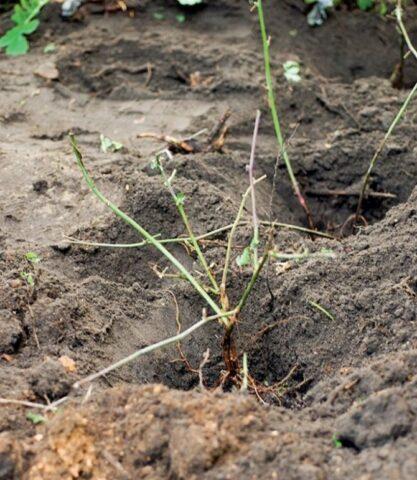
The vegetation of the bush begins at a temperature of +10 °C
If the sun's rays do not hit the shoots during the day, then neither they nor the berries will have time to ripen during the season. Ripe fruits will have sour flesh. In the southern regions, hybrids can be planted in partial shade. In the northern regions, growing blackberries is only possible in a place with maximum light, otherwise not only the berries do not ripen, but the plant itself does not grow well.
When placing a shrub, you need to take into account that it is better for the plant to experience a slight lack of moisture than to constantly be in water. In this case, the berries will not ripen, but rot. If liquid always accumulates on the plot after rains, then the bush will quickly die. When planting, it is best not to neglect the drainage system: place crushed stone or broken brick, or a layer of sand at the bottom of the hole.
In the south, during the ripening period, blackberries need to be watered once a week. If there is a drought, then twice in seven days. If the rains are regular, you can refuse watering.
In the north, plots need to be moistened once every two weeks. If the summer is hot and humid, you can reduce the amount of watering. The water temperature must be at least 17 °C.
The lack of nutrition and iron, due to which the crop does not ripen, can only be compensated for by regular, competent feeding:
- During the growing season, dig up soil around the perimeter of the bush and add rotted manure to it. A bucket for each hybrid. At the same time, it is best to fertilize the soil in liquid form with phosphorus and potassium.
- During the flowering period, the plant often lacks iron and magnesium. Blackberries not only do not ripen, they do not grow and drop their buds. To prevent vitamin deficiency and treat it, add iron chelate, Kalimag, to the soil. At the same time, it is recommended to water the plot with Humate and nitrogen fertilizer.
- When ripe, you need to add microfertilizers and ash to the ground. In the southern regions, preference should be given to nitrogen and humate. In the north, ash is a priority. Nitrogen complexes will lead to excessive growth of shoots, which in cold climates do not ripen due to a sharp drop in temperature.
- After harvesting, supporting the blackberry bush involves adding phosphorus and potassium to the soil mixture. It is best to use dry fertilizers if the crop does not ripen.If necessary, it is possible to use deoxidizers: ash or lime. Peat or pine litter are suitable for alkalization.
- Late feeding of blackberry bushes is necessary for shrubs growing in the south. You need to dig in manure around the perimeter of the bed if this was not done in the spring. Fertilize the soil around the trunk with phosphorus and potassium.
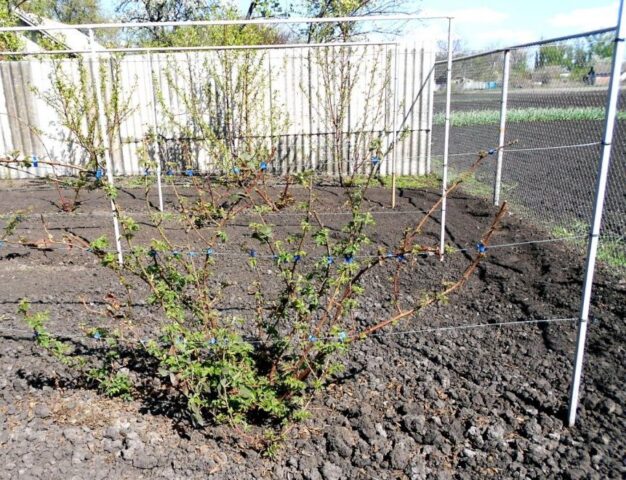
An integral stage of caring for blackberries, if the berries do not ripen, is tying up the shoots and timely pruning
Conclusion
Blackberries do not ripen if the gardener was irresponsible in planting and caring for the plant. Violation of agricultural technology can lead to the fact that the hybrid simply dies. In the worst case, when fungi or bacteria appear, nearby plants may also suffer. It should be taken into account that, although blackberries are considered an unpretentious crop, without proper care the harvest will be minimal and have low taste.
